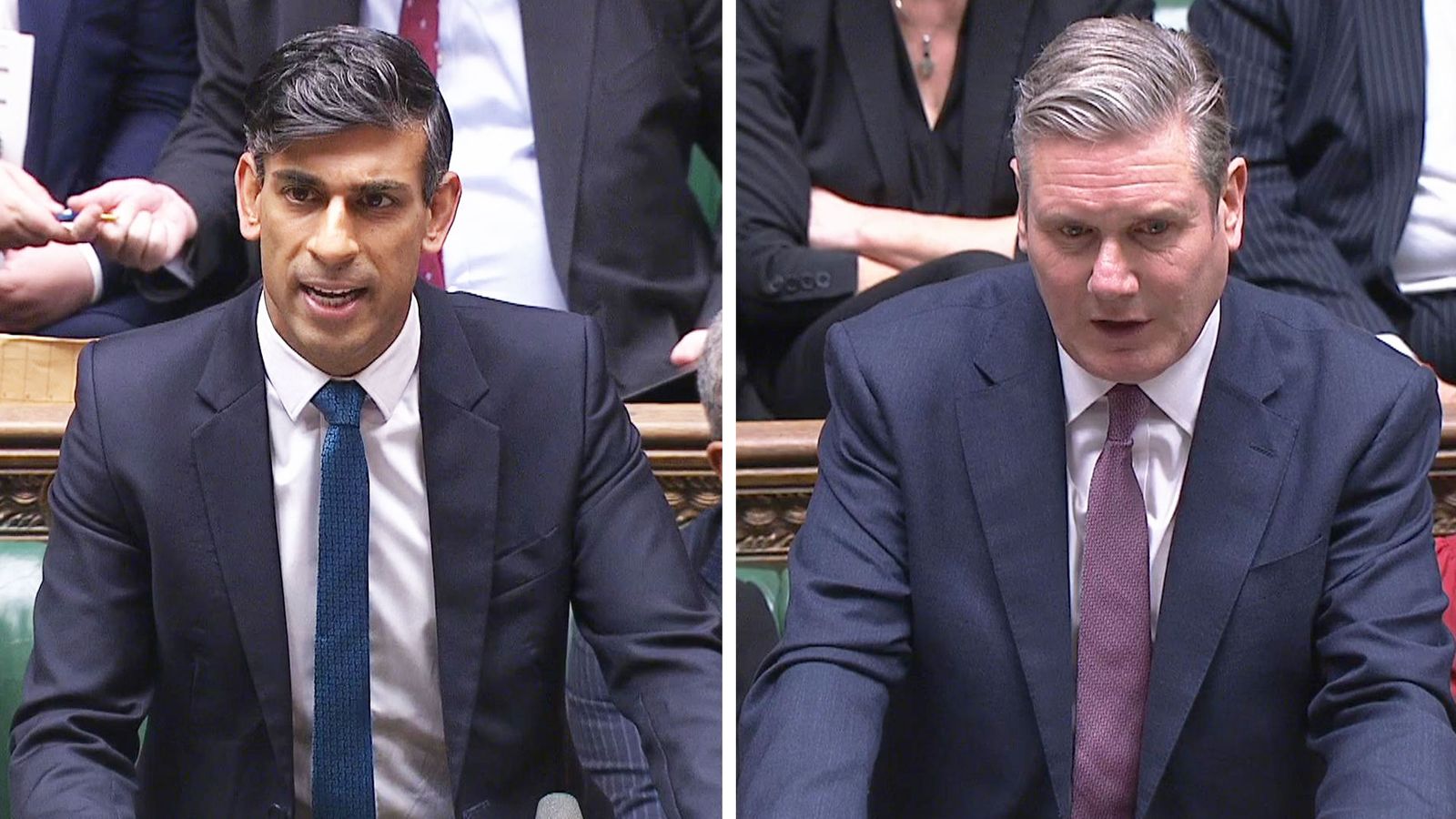Sir Keir Starmer said it is “nonsense” to suggest he would duck TV debates with Rishi Sunak during the general election campaign.
The Labour leader insisted he was happy to exchange views with the prime minister at any time, following reports that Labour aides would prefer him to avoid televised clashes that could get personal in the fight for the keys to Number 10.
“I’ve been saying bring it on for a very, very long time. I’m happy to debate any time,” Sir Keir said.
Politics Live: The date thought to be the frontrunner after Rishi Sunak’s election hint
Last week, a report in the Sunday Times claimed that Mr Sunak’s allies see TV debates as an opportunity to pitch him against Sir Keir in the choice between the two leaders.
Be the first to get Breaking News
Install the Sky News app for free
According to the newspaper, the Tories will seek to paint the Labour leader as unprincipled and argue that despite the prime minister’s personal wealth and unpopularity, at least people “know what he believes in”.
The newspaper reported that conversations between Mr Sunak’s team and broadcasters have already begun.
But it suggested that Labour aides are less enthusiastic about the prospect of TV debates, and would prefer opposition leader Sir Keir to duck them.
Sir Keir’s comments came as Mr Sunak gave the clearest indication yet of when he will call the election, telling reporters his “working assumption” is that it will be held “in the second half of this year”.
What are the rules on TV debates?
There is nothing in electoral law that requires televised election debates between party leaders.
If they take place, they are a matter for broadcasters and political parties.
The first general election TV debates in the UK took place in 2010 when three head-to-head clashes were held between Gordon Brown, David Cameron and Nick Clegg, then the leaders of the three main parties.
Before then, the UK was considered unusual in developed democracies in not holding televised debates between party leaders during general election campaigns (they are well established in the US, for example).
The first debate in 2010 was watched by 10 million people, and there was a perception that they were useful and might become a permanent feature of the election process.
Read More:
Sky News launches campaign to make leaders’ TV debate permanent election fixture
Delay in Sunak calling election the last thing Starmer needs
Starmer refuses to commit to unfreezing tax thresholds
However, in subsequent elections, broadcasters and politicians have failed to agree on terms. There were no head-to-head debates between the leaders of the main parties in 2015 or 2017.
In 2015 there was one seven-way debate with Mr Cameron, Labour’s Ed Miliband and the leaders of the smaller parties.
In 2017, then prime minister Theresa May infamously refused to debate with her Labour counterpart Jeremy Corbyn or other party leaders and her place was taken in one TV debate by then home secretary Amber Rudd.
In 2019, there were, for the first time, two head-to-head debates between the prime minister and opposition leader, with Boris Johnson and Mr Corbyn facing off.
However a Sky News debate proposed for 28 November between Mr Johnson, Mr Corbyn and Liberal Democrat leader Jo Swinson was cancelled after neither Mr Johnson nor Mr Corbyn were willing to participate.




